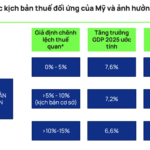As of July 1st, the 2024 Notary Law takes effect, bringing significant changes regarding real estate transaction notarization. Specifically, Article 44 of this law stipulates the jurisdiction of notary organizations over real estate transactions, including adjustments in the scope of real estate transaction notarization. Currently, notarization encompasses both notarization and certification.
However, there have been recent misconceptions that with the enforcement of the 2024 Notary Law, real estate purchases will no longer require notarization, and verification through the VNeID application will suffice for legal real estate transaction contracts.
The Government Office, in its Notification No. 171/TB-VPCP, mentioned adjusting administrative procedures to allow the use of electronic documents integrated into VNeID accounts instead of traditional paper documents in certain procedures to promote digital transformation.
Due to a misunderstanding of this information, many people assumed that all types of documents, including real estate purchase contracts, would no longer need notarization. Lawyers affirm that this interpretation is incorrect according to current legal regulations and could have serious consequences if applied wrongly.
According to Lawyer Nguyen Thang from Hanoi, there is currently no law or document stipulating a mandatory list of documents requiring notarization, but there are regulations on transactions that mandatorily require notarization or those that citizens voluntarily request for notarization.
These transactions are specified in specialized laws such as the Land Law and Housing Law. The process of notarizing or certifying contracts when buying and selling real estate remains unchanged. Notarization and certification aim to protect the rights of all parties involved, especially in disputes, as emphasized by the lawyer.
Lawyer Nguyen Thang analyzed that the newest regulation in the 2024 Land Law specifies seven cases where real estate notarization is mandatory. These include contracts for transfer, donation, mortgage, and contribution of land use rights, as well as real estate attached to the land; documents related to inheritance of land use rights and real estate attached to the land; lease, sublease, or conversion of agricultural land use rights; and transactions where one or more parties are organizations engaged in real estate business activities.
Additionally, there are documents related to the purchase, donation, exchange, or inheritance of houses that have been certified according to legal regulations before July 1, 2006; land lease contracts or capital contribution, business cooperation contracts, or written consent from the land user allowing construction; land or capital contribution lease contracts, business cooperation contracts, or written consent from the land user allowing the construction of houses when the owner follows the regulations of the law on housing but does not fall under the case specified in point a of Clause 5, Article 148 of the Land Law.
 Vinhomes Golden River project by the Saigon River, near District 1, Ho Chi Minh City. (Photo: Hong Dat/VNA)
|
Lawyers also recommend that citizens understand these cases to avoid legal complications. Another new aspect of real estate transaction notarization under the 2024 Notary Law pertains to its scope.
According to Article 44 of the 2024 Notary Law, notary officers of notary organizations are only authorized to notarize real estate transactions within the province or central city where the notary organization is headquartered, except for some exceptional cases.
Additionally, real estate transaction notarization files must be stored for at least 30 years at the headquarters of the notary organization. If stored outside the headquarters, written consent from the Department of Justice where the notary organization is located is required.
According to Point a, Clause 3, Article 27 of the 2024 Land Law, contracts for the transfer, donation, mortgage, or contribution of land use rights and assets attached to the land must be notarized or certified. Notarized or certified contracts have the same legal validity.
However, lawyers emphasize the need to distinguish between the two concepts of notarization and certification. Certification confirms that a copy conforms to the original or verifies an event or act, but the requester is responsible for the content, such as certifying personal documents, declarations, or wills.
On the other hand, notarization is the act of a notary officer certifying the authenticity and legality of a transaction’s content. This applies to transactions such as buying, selling, transferring, donating real estate, vehicles, power of attorney, asset agreements, etc. Notarization is not just a legal formality in many transactions but also an essential tool to protect the rights of the parties involved.
According to Lawyer Nguyen Hung Quan, from the Ho Chi Minh City Bar Association, in reality, while there is no fixed list of documents mandatorily requiring notarization or certification, many specialized laws clearly state that notarization is mandatory in real estate transactions. Notarization is not just a procedural requirement but a crucial legal safeguard, especially in high-value asset and real estate transactions. It publicizes transaction information, binds the responsibilities of the parties involved, and minimizes potential disputes.
If a contract is notarized, in the event of a dispute, it serves as the most robust legal evidence to help the aggrieved party protect their rights in court. In contrast, if the parties only agree in writing without notarization, even with electronic verification, it will be challenging to prove its legality in case of a dispute.
From July 1, 2025, despite the enforcement of the new Notary Law and the simplification of administrative procedures through technology, transactions related to real estate will still require notarization if mandated by specialized laws. Misinterpreting or deliberately circumventing the law could result in significant losses for citizens, as Lawyer Nguyen Hung Quan emphasized.
Thu Hang
– 09:57 26/06/2025
“Fewer Hassles, More Efficiency: Streamlined Contract Notarization for Citizens Starting July 1st”
“Starting July 1st, individuals seeking to notarize contracts will no longer need to include a ‘Notarization Request Form’ as part of their application. This is a positive step towards streamlining the process and reducing unnecessary paperwork for the public.”
“From June 1st, Electronic Health Insurance Cards Replace Paper Cards”
From June 1st to June 6th, the Social Insurance Agency will discontinue the issuance of paper health insurance cards, marking a transition to an electronic health insurance system with biometric identification. This innovative move enhances security and curbs potential fraud in the medical examination and treatment process, offering increased protection for citizens.













































